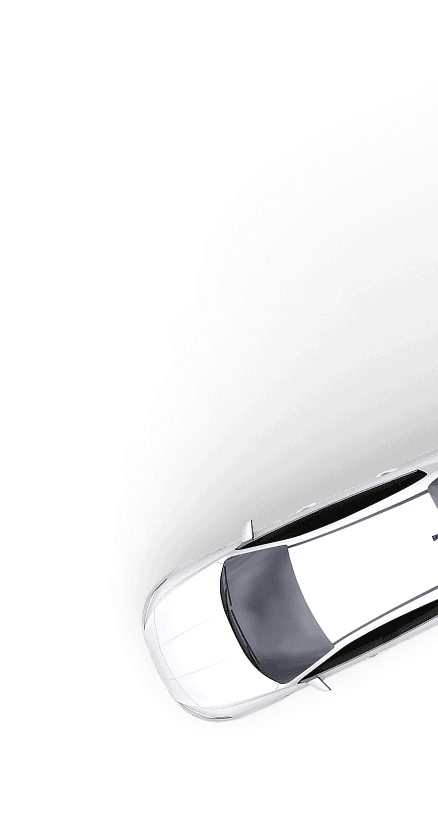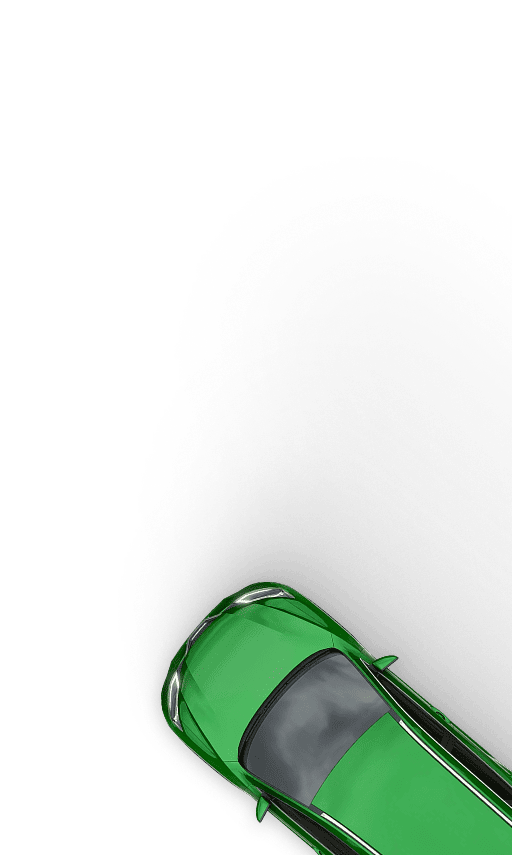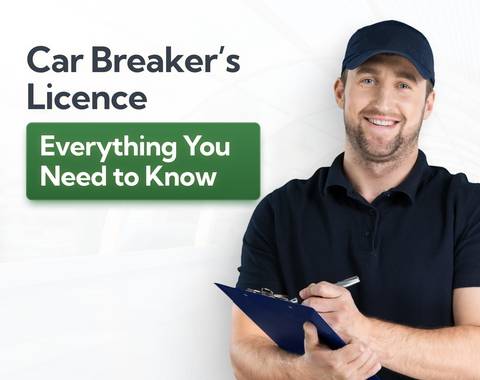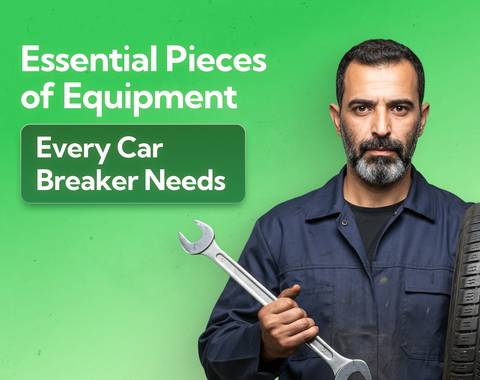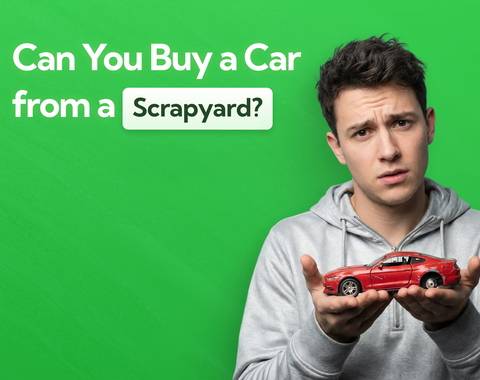How to Cancel Your Car Tax (Step-by-Step Guide for UK Drivers)
Wondering how to cancel car tax in the easiest way possible? Let’s find out. In this guide, we’ll explain the best ways to cancel car tax in the UK, whatever type of vehicle you have. We’ll explore which documents you need, what counts as a “valid reason” to cancel tax, and how long you’ll have to wait to get your tax refund.
Last updated: 19th November, 2025

Award-winning CEO driving growth and social impact across automotive, recycling, and technology-led enterprise platforms.
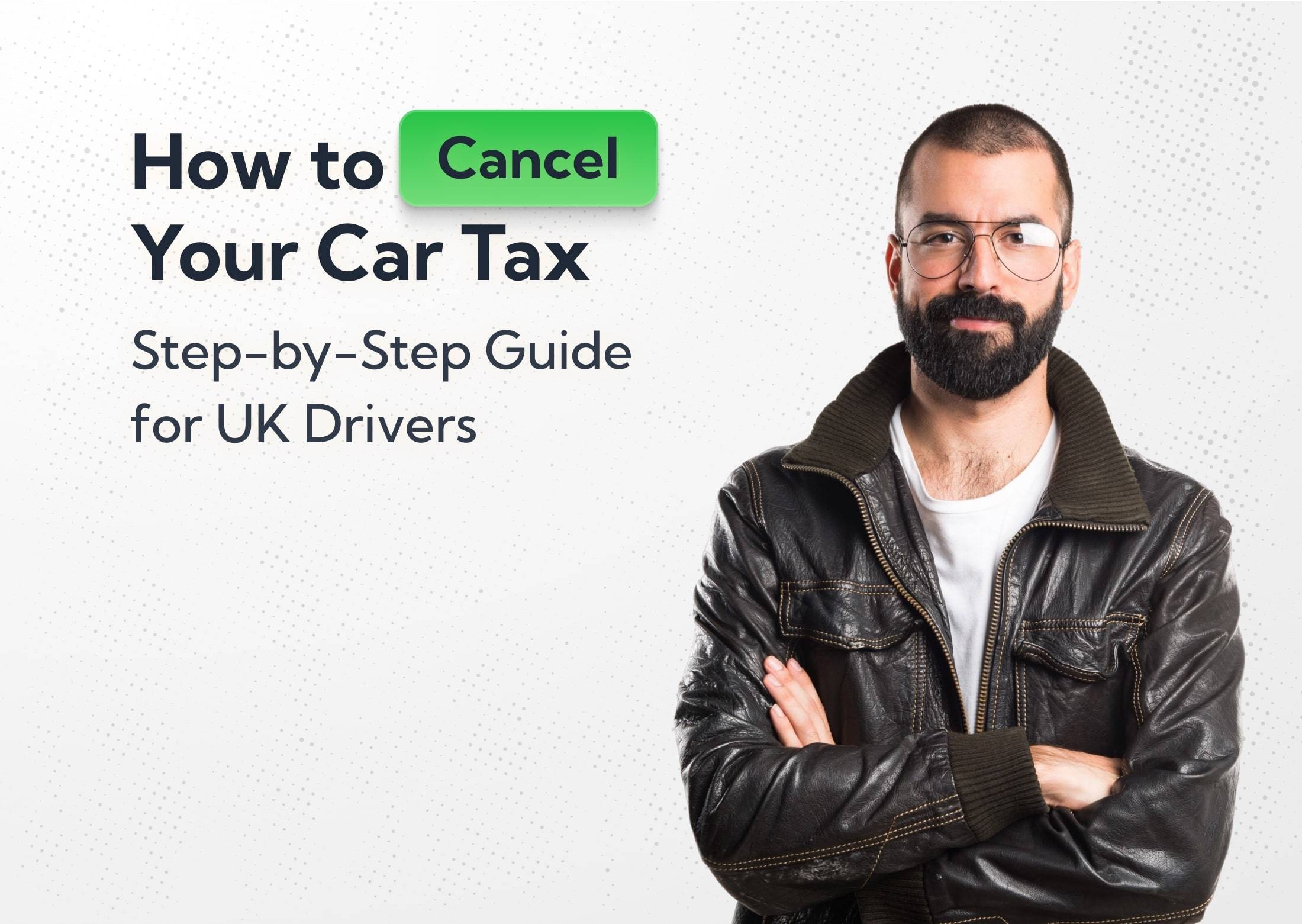
Listen to this story
Cancelling your car tax is a fairly straightforward process. However, exactly how you cancel car tax and why can dictate how easy the process is - as well as how long it takes for refunds to come through.
As long as you have a valid reason to cancel your car tax, however, it shouldn’t be a headache. The process takes just ten minutes and as long as your details are accurate and up-to-date, you shouldn’t encounter any problems.
Read on for our guide on how to cancel car tax online or by phone without any hassle.
What's in this article
- 1. Overview of Car Tax Cancellation in the UK
- 2. Valid Reasons to Cancel Car Tax
- 3. Step-by-Step Guide to Cancel Car Tax
Overview of Car Tax Cancellation in the UK
Despite what many drivers think, car tax doesn’t automatically cancel when you sell or scrap a car. Car tax is the driver’s responsibility. That means you have to go ahead and cancel the car tax yourself, either online or by phone.
Car tax cancellation in the UK is handled by the DVLA. They are the only body that can cancel your car tax, so you have to contact them directly.
The first thing you need is a valid reason to cancel your road tax:
Valid Reasons to Cancel Car Tax
There are several officially accepted reasons to cancel car tax in the UK. If you don’t meet these criteria, you can’t cancel your tax.
Here are the valid reasons accepted by the DVLA:
Selling Your Vehicle
If you’re selling your vehicle to someone else and ownership is officially changing hands, you need to cancel your tax. It does not transfer to the new owner.
Once you’ve notified the DVLA of the sale, your vehicle tax will be automatically cancelled. You’ll then receive a refund for any full remaining months of tax.
The next owner must then tax the vehicle themselves - although this isn’t your legal responsibility.
Scrapping or Writing Off a Vehicle
Your vehicle might have reached the end of its life. In which case, you’re probably looking to get the best possible price for scrapping. Whichever provider you go for, don’t forget to cancel your tax. You must tell the DVLA if you’re scrapping your vehicle or your insurance company has written it off.
To do this, you’ll need to:
- Use a government-licensed scrapyard to dispose of the vehicle. Look for your nearest Authorised Treatment Facility (ATF). They will be able to dismantle your car and provide you with a Certificate of Destruction (CoD).
- Inform the DVLA that the car has been scrapped by accessing their webpage (see step 1 of Stopping Car Tax After Selling a Car section above). Select the option stating that the car was scrapped. Alternatively, you may do so by post by filling out and sending out section 9 of your old-style V5C (or section 4 of the new red V5C) and sending it to: DVLA, Swansea, SA99 1BD
- Check that the tax has been automatically cancelled. If this is the case, then you're no longer the legal owner of the car.
- Once the vehicle is officially marked as scrapped or written off, your car tax is automatically cancelled, and you’ll be refunded for any complete months left.
The ATF will handle this process on their end, but the responsibility still falls upon you to notify them properly on yours.
Declaring a Vehicle as SORN (Statutory Off Road Notification)
You might not be selling or writing off your vehicle. You may simply be taking it off road. As long as you won’t be driving or parking it on public roads, this makes it a SORN vehicle. You don’t have to pay car tax on SORN cars.
Once a SORN is in place, your car tax is cancelled, and you’ll get a refund for any unused full months.
Just bear in mind that while SORN, the vehicle must always be kept on private land (driveways count).
Exporting a Vehicle Outside the UK
Permanently exporting your vehicle outside of the UK? Selling it abroad? You must notify the DVLA. As it’ll no longer be driving on UK roads, you won’t have to pay UK car tax (even if you still own it).
Once the export is registered, your vehicle tax will be cancelled automatically, and you’ll be entitled to a refund for the remaining full months of tax.
Switching to Disabled Driver Exemption
If you’ve become eligible for certain benefits, you might also become car tax-exempt. You need to apply successfully for this - it’s not automatic. However, once you are approved for a disabled driver exemption, our existing car tax will be cancelled.
Any unused full months of your previously paid tax will be refunded, and your vehicle will be reclassified under the disabled exemption scheme.
Eligible benefits include:
- Higher rate mobility component of Disability Living Allowance (DLA)
- Enhanced rate mobility component of Personal Independence Payment (PIP)
- Enhanced rate mobility component of Adult Disability Payment (ADP)
- Scottish Adult Disability Living Allowance
- Higher rate mobility component of Child Disability Payment
- War Pensioners’ Mobility Supplement
- Armed Forces Independence Payment
Step-by-Step Guide to Cancel Car Tax
The first thing you should do is find out when your current road tax ends. You can do this either by checking your V5C or on the DVLA website. Then, check if your reason for cancelling is valid.
Ready to cancel your car tax? Just follow these steps:
How to Notify the DVLA
You need to tell the DVLA that you’re cancelling your car tax. To do this, you’ll need to fill out a V11 form.
To submit the V11, you have three options:
- Online - submit the form online via the government website. It’s a simple process; just follow the instructions on the screen. This is the easiest method.
- Post - send the completed V11 form by post. The Post Office staff can help with this.
- Phone - call the DVLA on 0300 790 6802. You’ll need your V5C to hand.
Then, simply wait for confirmation that the DVLA has received your request!
Required Information and Documents
You can’t just phone the DVLA with your name and cancel your car tax. You’ll need several key pieces of information/documents:
- Your name, address, and postcode
- Your V5C which confirms you are the registered keeper of the vehicle
- A payment method (ideally a debit or credit card)
We recommend that you get these documents ready before you apply for cancellation as it will save you a lot of time.
Online vs Paper-Based Cancellation Process
Cancelling car tax online is by far the easiest, quickest method. As long as you have all the right details, you can cancel your car tax in just a few minutes. If you pay by Direct Debit, the tax will be cancelled automatically and you’ll soon get a refund cheque for any remaining months left on your tax.
You can apply to cancel your road tax at the Post Office, too. However, this will take longer. The DVLA will only be able to cancel the tax when they receive and review the information you’ve sent.
Other than that, the process is the same. The DVLA will send a refund cheque to the address on your V5C.
Overall, it’s better to cancel car tax online via the DVLA website.
How Long Cancellation Takes to Process
Cancellation actually happens immediately, assuming all your details are correct and your reason for cancelling are valid.
However, you’ll likely still have full months (paid) remaining between when you cancel and the end of the tax year. This is where you’ll have to wait for the DVLA to calculate and send a refund cheque.
You should get the refund cheque within 8 weeks. If you’re still waiting after this time, contact the DVLA.
What the experts say

Anthony Sharkey
How Car Tax Refunds Work After Cancellation
When you cancel your car tax, you’ll often have months left that you’ve already paid for when you paid your tax but which you’ll now no longer need to pay. In this case, the DVLA will issue a refund for the tax paid on these months.
Eligibility for Refunds
How Car Tax Refunds Work After Cancellation
When you cancel your car tax, you’ll often have months left that you’ve already paid for when you paid your tax but which you’ll now no longer need to pay. In this case, the DVLA will issue a refund for the tax paid on these months.
Eligibility for Refunds
Of course, to get a tax refund, you’ll need to have paid tax on a vehicle you no longer have/use. However, that’s not the only criteria for a DVLA tax refund. You’ll also need to be cancelling your tax for a valid reason, such as:
- Selling your car
- Scrapping your car
- Exporting your car
- Declaring it SORN
- Switching to a disabled exemption
Note that refunds are only given for any full remaining months of tax. You won’t receive a refund if there are only partial months left.
How Refunds Are Calculated by the DVLA
The first thing the DVLA will do when calculating your tax refund is find out how much VED you’ve paid the year you cancel, minus any credit card fees (if applicable).The refund starts from the first day of the next full month after cancellation.
For example, let’s say you pay £165 of car tax in April. That’s £13.75 a month. If you sell your car on the 12th of June, your refund will cover from the 1st of July onwards. You’ll get £96.25 back.
How Refunds Are Paid (Bank Transfer, Cheque, etc.)
Currently, the DVLA issues refunds by cheque. They send this to the address on the V5C.
Even if you’ve paid your car tax via Direct Debit, the DVLA still sends a cheque. They don’t pay refunds by bank transfer or direct debit reversal in any circumstances.
Don’t worry, if you paid via direct debit, your future installments are automatically stopped.
Common Delays and Issues With Refunds
Refunds are supposed to come in within 8 weeks. In most cases, it’s well below that. However, delays are always possible. Sometimes, a slight hitch can take your refund time over the 8-week mark.
Delays can happen if:
- The DVLA hasn’t received confirmation of the cancellation (e.g., from your insurer or ATF).
- Your address on the V5C logbook is out of date, so the cheque is sent to the wrong place.
- You fail to notify the DVLA of the change (e.g., after selling or exporting).
If you’ve been waiting more than 8 weeks for your refund, you should get in touch with the DVLA as soon as possible to find out why.
What Happens If You Forget to Cancel Car Tax
Life can get in the way. It’s very easy to forget to cancel things like subscriptions and car tax if you don’t do it straight away. However, doing so could cause more problems than it’s worth.
Failing to cancel car tax can result in:
- No refund - if you don’t cancel your car tax when you sell or write off a car, for example, you won’t get the refund for the remaining months you’ve already paid. This could potentially be hundreds of pounds.
- Penalties & overpayments - if you pay car tax by Direct Debit but fail to tell the DVLA you no longer own the vehicle, those Direct Debit payments will continue to leave your account. Similarly, if you no longer own the car but haven’t cancelled your tax, you remain technically liable. So, if the vehicle’s tax isn’t valid, any automatic £80 penalties (or £1000 fines for persistent failure) would be your responsibility.
Luckily, there’s an easy way around these problems. Just remember to follow a few basic principles:
- You must tell the DVLA when you sell, scrap, write off, or in any other way relinquish ownership of your vehicle. Car tax does not cancel automatically.
- Cancel your road tax as soon as possible. Don’t put it off or you risk forgetting.
Important Differences Between Cancelling and Declaring SORN
People often mix these two up because both involve “stopping” car tax. However, they’re two different processes for two very different situations.
Let’s take a closer look:
You must cancel car tax when you transfer ownership of the vehicle in some way or another. That could mean:
- You’ve sold your car.
- You’ve scrapped it.
- You’ve permanently exported it.
- You’ve transferred it to a motor trader.
Essentially, you’re no longer the registered keeper. So, tax responsibilities transfer to the new owner.
However, when you declare a vehicle SORN (Statutory Off Road Notification), you’re actually keeping the car but won’t be using it on public roads. The key difference here is that you’re not transferring ownership. You’re simply not paying any more tax on it.
In both cases, of course, you must inform the DVLA.
Tips to Ensure a Smooth Cancellation
We want your car tax cancellation to go as smoothly as possible to save you costs and delays. If you follow a few key principles, you shouldn’t encounter any problems. The DVLA is generally very good at cancelling car tax - provided all details are correct.
Here are some expert tips for avoiding any problems when cancelling your road tax:
- Update your details - regularly make sure your V5C details, as well as insurance and MOT details, are up-to-date and accurate. This will help the DVLA process your cancellation and refund more quickly.
- Check DVLA confirmation - you should get an immediate confirmation email or letter from the DVLA as soon as they’ve cancelled your car tax. Make sure you read this document carefully - don’t just scan it!
- Keep cancellation proof - once you’ve read your confirmation, keep the attached proof of cancellation safe and sound. If any problems crop up later on - which is unlikely - it could come in handy.
Final Thoughts on Cancelling Car Tax
If you’ve been wondering how to cancel car tax online or by post, we hope you’ve found your answer. The process is generally pretty simple: inform the DVLA, provide some details, and wait a few weeks while they process your refund.
However, you need to do two things:
- Make sure your details are accurate and complete.
- Make sure you have a valid reason for cancelling your tax (like selling, scrapping, or declaring your vehicle SORN).
To find out exactly how much you’re paying in road tax, and how much you could save by cancelling it, check out Car.co.uk’s free car tax checker. Simply enter your details and find out how much you should be paying.
Good luck with your car tax cancellation!
Frequently asked questions
You won't get a refund for the month you sell, even if you do this on the 1st of the month. The DVLA counts partial months as ones that you have used, and, therefore, they are not covered by their refund policy. Instead, you'll be compensated for any of the next full months that you have already paid for.
That will depend on the specific circumstances. If the registered keeper was the disabled person, then no refund will be given, as no money would have been paid for the tax since the car is exempt. If the vehicle was taxed at a reduced rate, the registered keeper will gain back any portion that they paid in.
If someone else paid the tax on behalf of the disabled person, the refund will still go to the registered keeper, as their name will be on the V5C Logbook. If the car is registered to a carer or family member, they will receive the refund if any tax was paid and full months remain.
Unfortunately, you’ll need your V5 reference number. The best thing to do is simply apply for a new V5C online before cancelling your car tax.
The DVLA only issues refunds for the remaining full months. If you cancel mid-month, you won’t get the half-month refund. Your refund will start from the 1st of the next month.
It should arrive within 8 weeks, although it often takes much less time than that if your details are correct. The only thing that could extend that timeline would be a complication in your application.
Insurance and car tax are two completely separate entities, so yes. It’s your responsibility to also cancel your insurance if you no longer need it.
Driving an improperly taxed vehicle can land you with a fine of up to £1000, so you should re-tax your vehicle immediately on the DVLA website.
Yes. It’s your responsibility to tell the DVLA that the vehicle has been sold or transferred. It’s not automatic. If you don’t, you would still technically be liable for any fines incurred on that vehicle.
No, this will not be possible as Vehicle Excise Duty is directly linked to the car, not the owner. When you sell the car, its tax will not be automatically transferred to the new owner. Instead, the new owner will be responsible for taxing it themselves before they can legally drive it.
No, it’s the same process. Even if you have a motorcycle that’s in a £0 tax band, and therefore don’t pay road tax, you still need to legally tax your vehicle. So, if you sell or get rid of your vehicle, you also need to cancel the tax
You can cancel your car tax online very quickly. However, the DVLA will need to assess your application before the refund comes through.
If your car is written off, the insurer usually becomes the legal owner. Once you notify DVLA (or your insurer does), your car tax is automatically cancelled and you’ll get a refund for any full unused months.
No. You can’t drive an untaxed car on public roads in the UK. If you do so, you risk hefty fines of up to £1000. The only exception would be if your car is more than 40 years old.
No, but you'll still be losing money unnecessarily. If you notify the DVLA, they can stop your direct debit and potentially issue a refund. You could still be fined if you fail to inform them of the car's sale. So, while you won't be penalised for paying after-sales tax, you can be fined for not telling the DVLA that the car is owned by someone new.
About Car.co.uk

Share on
Latest news & blogs


